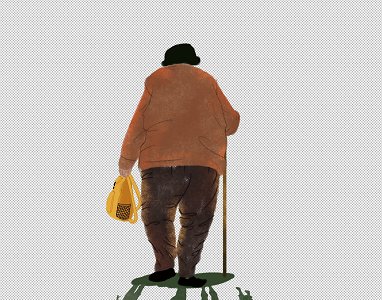At present, there is no specific treatment drug for Alzheimer’s disease. Once a patient is diagnosed, nursing care will run through the entire process of patient treatment and recovery. As a result, nursing has become an integral part of the care of Alzheimer’s patients.

Appropriate care can delay the progression of Alzheimer’s disease and improve their quality of life. Therefore, families with Alzheimer’s disease patients should take into account the four aspects of patient, caregiver, room environment and resources when caring at home, and comprehensively formulate a personalized care plan.
1. For the elderly with mobility, the caregiver can arrange for the elderly to do some things within their power, such as regular toileting, washing, dressing and undressing, etc., and encourage and assist the elderly to participate in activities of interest, including Playing chess, playing poker, reading aloud, singing, playing games, etc., let the elderly gain a sense of existence, value and satisfaction in entertainment activities.
2. Caregivers need to know about Alzheimer’s disease, communicate with patients in a calm tone, listen patiently, and understand the living habits, interests and hobbies of the elderly. At the same time, the caregiver should take the medicine according to the schedule, supervise the taking of the medicine, and prevent the missed dose, multiple doses, and indiscriminate doses.
The caregiver needs to master the ability to deal with the patient’s mental and behavioral abnormalities. When the patient appears frightened, anxious, violent and other behaviors, the caregiver should identify it in time, comfort and persuade moderately, and divert the attention of the elderly.
3. The patient’s home environment should be comfortable, safe and well-lit. The room should have fewer thresholds and more handrails, and the ground should be non-slip to prevent patients from falling. Caregivers also need to manage hazardous materials in the home to prevent accidental injury. The door should be installed with a combination lock that is not easy to open to prevent the patient from getting lost. Try to do as little moving and decoration as possible to maintain the stability of the patient’s living environment.
4. Caregivers can make full use of family and social resources. Ask relatives, friends, etc. to help take care of the elderly and relieve their own pressure. At the same time, caregivers can also keep in touch with day care centers, communities, hospitals, etc., and receive timely support and help.
It is important for caregivers to avoid over-care when caring for a patient with Alzheimer’s disease, which can accelerate the rate of residual loss of function in the patient.
Text: Zhao Ke, Second Ward, Geriatric Ward, Benxi Central Hospital, Liaoning Province